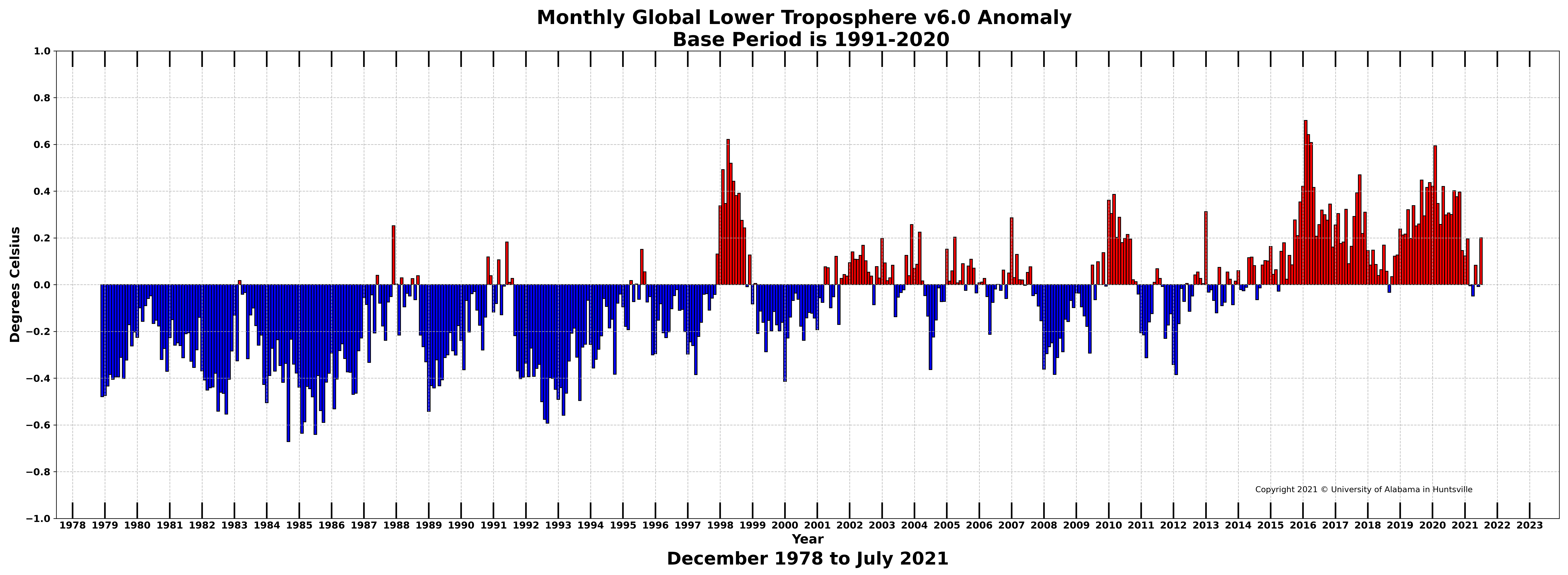Climate change: New report will highlight ‘stark reality’ of warming
By Paul Homewood
Once every five years, the IPCC publishes its latest Assessment Report into the state of the climate. And every five years, governments get together to write their own scary version:
UN researchers are set to publish their strongest statement yet on the science of climate change.
The report will likely detail significant changes to the world’s oceans, ice caps and land in the coming decades.
Due out on Monday, the report has been compiled by the Intergovernmental Panel on Climate Change (IPCC).
It will be their first global assessment on the science of global heating since 2013.
It is expected the forthcoming Summary for Policymakers will be a key document for global leaders when they meet in November.
After two weeks of virtual negotiations between scientists and representatives of 195 governments, the IPCC will launch the first part of a three-pronged assessment of the causes, impacts and solutions to climate change.
It is the presence of these government officials that makes the IPCC different from other science bodies. After the report has been approved in agreement with governments, they effectively take ownership of it.
On Monday, a short, 40-page Summary for Policymakers will be released dealing with the physical science.
It may be brief, but the new report is expected to pack a punch.
“We’ve seen over a couple of months, and years actually, how climate change is unfolding; it’s really staring us in the face,” said Dr Heleen de Coninck, from Eindhoven University of Technology in the Netherlands, who is a coordinating lead author for the IPCC Working Group III.
“It’s really showing what the impacts will be, and this is just the start. So I think what this report will add is a big update of the state of the science, what temperature increase are we looking at – and what are the physical impacts of that?”
One key question in the new summary will be about the 1.5C temperature target. The climate summit held in the French capital, Paris, in 2015, committed nations to try to limit the rise in global temperature from pre-industrial times to no more than 1.5 degrees.
https://www.bbc.co.uk/news/science-environment-58102953
#
Paul Homewood:
The fact that governments “negotiate” tells us every thing we need to know. Their Summary for Policymakers will not be an objective, independent scientific report, it will be a political statement.
This will be the sixth report, and every previous one has used progressively more scary language, in order to ramp up the propaganda. The gullible western media naturally laps it all up, despite the fact that none of their apocalyptic warnings have come true. Meanwhile, the rest of the world merely pays lip service to it, demands ever more blood money and carries on as normal.
McGrath, not for the first time, shows how poorly he understands the Paris Agreement, misleading readers by saying “The climate summit held in the French capital, Paris, in 2015, committed nations to try to limit the rise in global temperature from pre-industrial times to no more than 1.5 degrees.”
It did no such thing. While it aimed to keep temperature rise below 2C, and pursue efforts to limit it to 1.5C, the national pledges actually made in Paris meant that emissions would remorselessly increase, as of course they have done. The Agreement committed nobody to limit the rise.
We must wait for the report, but I have little doubt it will contain the usual threats about melting ice caps, sea levels, storms, floods, hurricanes, droughts, famines and wildfires. All of these will get much worse in years to come, it will say, despite the fact that there is no actual evidence to support this. When the full scientific report is eventually published, this will all be apparent.
Meanwhile global temperatures, following on from the record El Nino in 2015/16, are no higher now than they were two decades ago. Isn’t it strange that things like Germany’s floods this year have been based on global warming, when there has not been any for twenty years!




